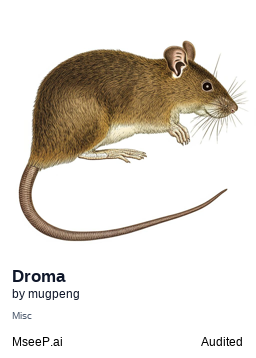About
The DROMA MCP Server provides an AI‑friendly, asynchronous interface to the DROMA drug‑response omics database, enabling natural language queries, dataset management, and seamless R integration for cancer pharmacogenomics research.
Capabilities

Overview
The DROMA MCP Server is a specialized Model Context Protocol (MCP) endpoint that exposes the rich functionality of the DROMA drug‑response omics framework to AI assistants. By turning complex R‑based analyses into a simple, natural‑language interface, it removes the need for developers to write custom wrappers or manage R sessions manually. This makes pharmacogenomics data accessible to conversational agents, enabling researchers to ask questions about drug‑gene associations and receive instant, interpretable answers.
At its core, the server loads DROMA datasets—such as CCLE and gCSI—into memory, performs on‑the‑fly z‑score normalization of molecular profiles, and offers a suite of analytical tools that mirror the capabilities of the underlying DROMA.R and DROMA.Set packages. The integration is handled through rpy2, allowing the server to invoke R functions seamlessly while keeping the Python‑based MCP infrastructure lightweight. Developers can therefore leverage existing, battle‑tested R code without duplicating effort or sacrificing performance.
Key features include multi‑project support, smart caching with LRU eviction, and flexible transport options (STDIO for AI assistants, HTTP/SSE for web apps). The server also provides comprehensive data export options (CSV, Excel, JSON) and a modern, type‑safe CLI for managing datasets, validating dependencies, and benchmarking performance. These capabilities translate into real‑world workflows where a clinician can query “Which drugs are most effective for tumors with TP53 mutations?” and receive a ranked list backed by normalized expression data, all within seconds.
For AI workflows, the MCP server acts as a first‑class tool that can be invoked from any language or platform. An assistant simply sends an MCP request describing the desired analysis, and receives a structured response that can be incorporated into a report or visualized in a dashboard. Because the server handles data loading, caching, and R integration internally, developers can focus on building higher‑level conversational logic rather than plumbing data pipelines.
Unique advantages of DROMA MCP include its tight coupling with the well‑established DROMA ecosystem, robust error handling and validation layers, and performance optimizations such as asynchronous I/O, connection pooling for R environments, and batch processing of datasets. These design choices make the server reliable in production settings while remaining easy to extend for new omics modalities or analytical methods.
Related Servers
Netdata
Real‑time infrastructure monitoring for every metric, every second.
Awesome MCP Servers
Curated list of production-ready Model Context Protocol servers
JumpServer
Browser‑based, open‑source privileged access management
OpenTofu
Infrastructure as Code for secure, efficient cloud management
FastAPI-MCP
Expose FastAPI endpoints as MCP tools with built‑in auth
Pipedream MCP Server
Event‑driven integration platform for developers
Weekly Views
Server Health
Information
Explore More Servers
MCPilot
AI chatbot with real‑time tool integration
Mcpgo
Go-based MCP server with Server-Sent Events transport
Chuck Norris Joke CLI
Command-line tool for random Chuck Norris jokes
Kit MCP Server
Lightweight, modular API server for quick prototyping
Filesystem MCP Server
Integrate LLMs with local file systems effortlessly
GrowthBook MCP Server
LLM‑enabled access to GrowthBook experiments and flags